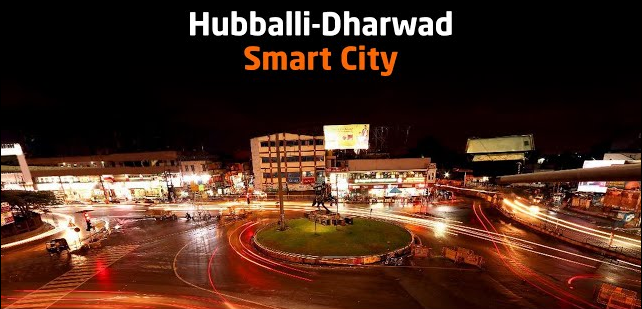Places evolve, cultures shift, and economies transform. However, while some places manage to preserve their significance, others fade.
Not moving far from me, I have witnessed places around me that are evolving while holding onto their feel and quality of life, which goes beyond just material progress. On the other hand, some places struggle to develop while also losing their existing charm.
Udupi
Udupi, once primarily known for its ancient temples, rich culinary, fishing industry, and pristine beaches, is now witnessing a transformation that blends tradition with modern aspirations. The town, long associated with the Sri Krishna Matha and the world-famous Udupi cuisine, still retains its spiritual and cultural significance. The fishing villages continue to be integral to the region’s identity, yet Udupi is no longer just a temple town or a coastal retreat.
In recent years, Udupi has quietly emerged as a preferred destination for professionals looking to escape the chaos of metropolitan cities while maintaining access to modern opportunities. With the rise of tech companies, remote work culture, and educational institutions driving skilled professionals, Udupi is evolving into a place where one can enjoy the best of both worlds.
Factors driving evolution
This evolution is shaped by multiple factors. Economically, the city is expanding beyond its traditional industries of fishing and hospitality, now drawing in IT firms, startups, and co-working spaces that support a remote workforce.
Politically, there is a growing push to develop infrastructure and boost digital connectivity, ensuring that Udupi remains attractive to those seeking an alternative to the fast-paced life of Bengaluru.
Geographically, its proximity to Mangaluru’s international airport and its scenic coastal setting make it an ideal place for professionals who wish to work in a peaceful environment without disconnecting from the outside world.
Unique path to growth
Udupi’s growth is unique because, rather than erasing its past, it is building upon its legacy. The temple streets still bustle with devotees, the coastal air still carries the vibe of fresh seafood, and the city’s core values of simplicity and warmth remains intact. Yet, in parallel, a new generation of entrepreneurs and professionals are finding a home here, reshaping Udupi into a modern hub that respects its heritage while embracing the future.
Hubli-Dharwad
While Udupi has found a way to keep up its charm while fulfilling modern aspirations, Hubli-Dharwad presents an interesting contrast a region with immense potential yet facing challenges in keeping up with evolving times.
Hubli: The Commercial Powerhouse
Often called “Chota Mumbai”, Hubli has long been known as a major commercial and industrial hub of Karnataka. With its strategic location, excellent rail, road and air connectivity, and booming trade sectors, it serves as an economic engine for the region. The presence of industries, businesses, and a rapidly growing urban landscape kept Hubli relevant as a thriving center of commerce.
Dharwad: The Cultural and Educational Capital
Dharwad, on the other hand, has traditionally been the intellectual and cultural heart of Karnataka. Home to prestigious institutions, the city has nurtured generations of engineers, doctors, scholars, poets, writers, actors, and artists who have made a mark across the world. Dharwad’s contribution to literature, music, and academics remains unparalleled, giving Karnataka some of its greatest minds. Dharwad was also known as a pensioners' paradise, a city that once attracted people after their retirement due to its pleasant climate and peaceful atmosphere.
Challenges for Growth
Despite their strengths, Hubli-Dharwad has not seen the same modern evolution as places like Udupi. However, I don’t see this as "lagging behind" but rather as a reflection of how these places are evolving differently. In the clutches of people, businesses, and politics, both cities risk losing their original charm instead of revolutionizing their growth while preserving what makes them special.
Lack of Industrialization, IT, and Startup Ecosystem: Hubli-Dharwad isn't embracing tech companies and the remote work culture. The place that was once a hotspot for industries is now struggling to position itself as a major hub for emerging sectors.
Infrastructure and Planning Challenges: Despite being a twin city, planned urban development has been slower compared to other rapidly growing towns. The Smart City funds are being misutilized or poorly implemented, leading to a decline in the quality of life rather than improvement.
Talent Drain: While Dharwad produces some of Karnataka’s finest professionals, many leave for Bengaluru, Mumbai, Pune, Hyderabad, or even foreign countries due to limited job opportunities in their fields. The majority of people are not interested in staying back and contributing to Hubli-Dharwad’s development; instead, they seek a better quality of life elsewhere.
Education as a Business: Education, which was once the pride of Dharwad, is now increasingly becoming a means to mint money, reducing its true impact on the region’s growth.
The Way Forward
If we cannot revolutionize Hubli-Dharwad into a next-generation lifestyle hub, we must at least preserve its charm. Rather than allowing unplanned growth and misguided policies to take away what makes these cities special, efforts should be made not only by governing bodies but also by the people to develop the places responsibly while promoting industries beyond trade and education, improving infrastructure, and positioning Hubli-Dharwad as a cultural and economic alternative to bigger cities.
Sustainable Development: Udupi at a Crossroads
While Udupi’s progress is promising, it must grow cautiously. The transformation seen in Hubli-Dharwad decades ago is a reminder of how rapid growth, if not carefully managed, can alter a city’s character.
Hubli was once crowned "Chota Mumbai" for its booming trade and commerce, while Dharwad was celebrated as "Pensioners' Paradise" for its serene environment and "Vidyakashi" for its academic excellence. However, over time, these cities are facing challenges that are diluting their charm with unplanned development, mismanaged Smart City projects, talent migration, and a lack of focus on modern industries.
Udupi must learn from this. Growth should not come at the cost of its cultural and environmental identity. Rather than blindly following urbanization trends, it must balance modern aspirations with the essence that makes it special.



Comments
Post a Comment